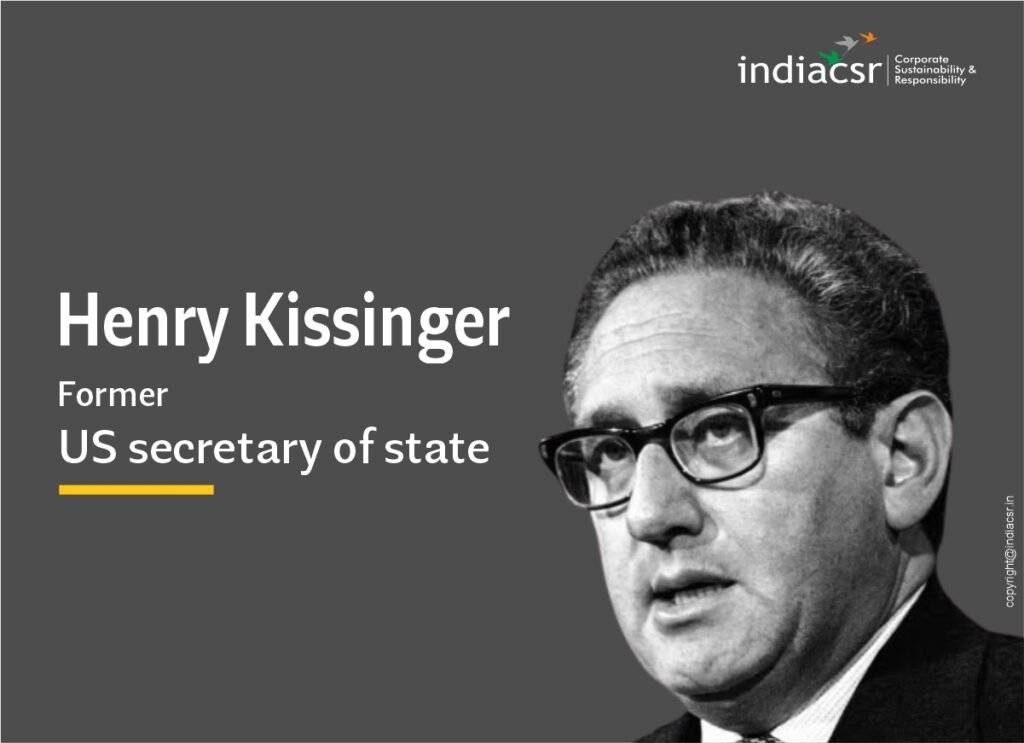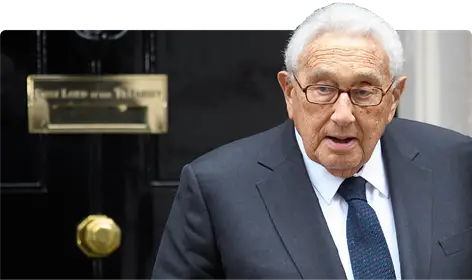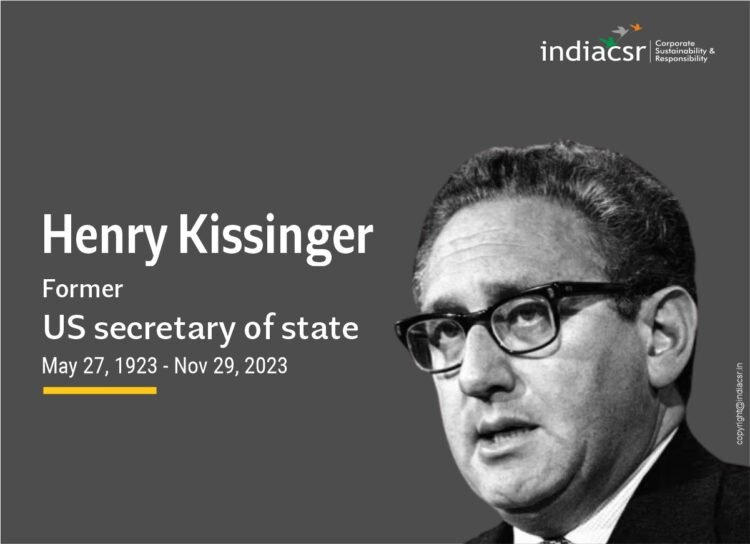Henry Kissinger is credited with advancing the U.S. interests and influence in the world, and contributing to the resolution of some of the most complex and dangerous conflicts of the 20th century.
Henry Kissinger was an American diplomat, political scientist, geopolitical consultant, and politician who served as the U.S. secretary of state and national security advisor under Presidents Richard Nixon and Gerald Ford from 1969 to 1977.
He was born in Germany in 1923 and came to the U.S. as a Jewish refugee from Nazi persecution in 1938. He served in the U.S. Army during World War II and later earned a PhD from Harvard University, where he became a professor of government and an expert on nuclear weapons and foreign policy.
He played a key role in shaping the U.S. foreign policy during the Cold War, the Vietnam War, and the Middle East conflict. He pioneered the policy of détente with the Soviet Union, opened diplomatic relations with China, mediated the end of the Yom Kippur War, and negotiated the Paris Peace Accords, which ended the U.S. involvement in the Vietnam War.
He received the Nobel Peace Prize in 1973 for his efforts to end the Vietnam War, along with Le Duc Tho, the chief negotiator of North Vietnam. However, the award was controversial, as many critics accused him of prolonging the war and causing massive civilian casualties.
***

Achievements of Henry Kissinger
Henry Kissinger is widely regarded as one of the most influential and successful diplomats in American history. Some of his major achievements are:
Détente with the Soviet Union
Kissinger pursued a policy of détente, or relaxation of tensions, with the Soviet Union, the main rival of the U.S. during the Cold War. He negotiated several agreements with the Soviet leaders, such as the Strategic Arms Limitation Talks (SALT I), the Anti-Ballistic Missile Treaty (ABM), and the Helsinki Accords, which aimed to limit the nuclear arms race, reduce the risk of war, and promote human rights and cooperation in Europe.
Opening to China
Kissinger orchestrated a historic breakthrough in the U.S.-China relations, which had been hostile and isolated since the Communist revolution in 1949. He secretly visited Beijing in 1971 and met with Chairman Mao Zedong and Premier Zhou Enlai, paving the way for Nixon’s official visit in 1972. He established diplomatic contacts and trade relations with China, and persuaded China to support the U.S. policy of ending the Vietnam War.
Shuttle diplomacy in the Middle East
Kissinger engaged in a series of diplomatic missions in the Middle East after the outbreak of the Yom Kippur War in 1973, which pitted Israel against Egypt and Syria. He shuttled between the leaders of the warring parties and brokered several ceasefires and disengagement agreements, which prevented a wider conflict and improved the prospects of peace in the region.
Paris Peace Accords
Kissinger was the chief negotiator of the Paris Peace Accords, which were signed in 1973 and ended the U.S. military involvement in the Vietnam War. The accords provided for a ceasefire, a prisoner exchange, and a political settlement between the South Vietnamese government and the Viet Cong, the Communist rebels supported by North Vietnam. The accords also recognized the sovereignty and territorial integrity of Vietnam.
***

Criticisms of Henry Kissinger
Henry Kissinger is also widely criticized and condemned for his role in various controversial policies and events, which have been accused of violating human rights, international law, and democratic principles. Some of his major criticisms are:
Bombing of Cambodia
Henry Kissinger authorized and oversaw the secret and massive bombing of Cambodia from 1969 to 1973, which was intended to destroy the supply routes and bases of the Viet Cong in the neighboring country. The bombing killed hundreds of thousands of civilians, displaced millions of people, and destabilized the Cambodian government, which led to the rise of the genocidal Khmer Rouge regime.
Coup in Chile
Henry Kissinger supported and facilitated the 1973 coup d’état in Chile, which overthrew the democratically elected socialist president Salvador Allende and installed the military dictatorship of General Augusto Pinochet. The coup was motivated by the U.S. fear of the spread of communism and the nationalization of American interests in Chile. The coup resulted in the death, torture, and disappearance of thousands of people, and the suppression of civil liberties and human rights .
Support for Pakistan
Henry Kissinger backed and aided the military regime of Pakistan during the 1971 Bangladesh Liberation War, which was fought between Pakistan and its eastern province, which declared independence as Bangladesh. Kissinger ignored and downplayed the genocide and atrocities committed by the Pakistani army against the Bengali population, and pressured India, which supported Bangladesh, to refrain from intervening. He also sought to enlist China as an ally of Pakistan against India and the Soviet Union.
Indonesia’s invasion of East Timor
Henry Kissinger approved and supplied weapons to Indonesia’s invasion of East Timor in 1975, which was a former Portuguese colony that declared independence. The invasion was opposed by the UN and the international community, and was marked by widespread violence and human rights violations. The occupation of East Timor by Indonesia lasted until 1999 and claimed the lives of more than 100,000 people.
***
Henry Kissinger is also blamed for causing and supporting some of the most horrific and tragic events of the 20th century, and violating the principles of democracy, human rights, and international law.






